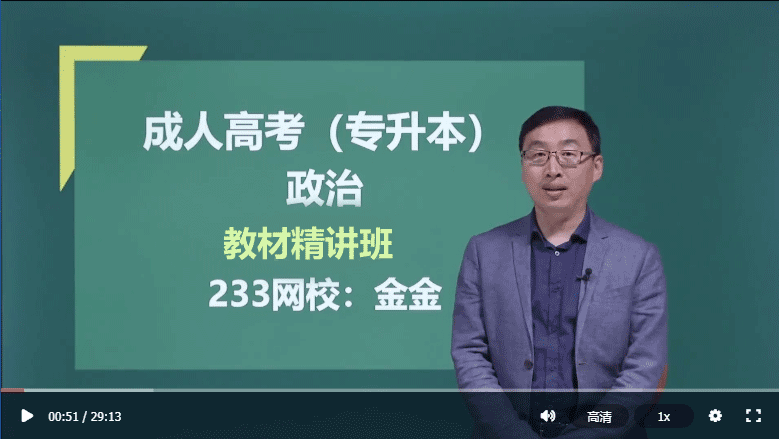2008εΙ¥φàêδΚΚιΪ‰ηÄÉδΗ™εç΅φ€§η΄±η·≠εΛçδΙ†γ§îη°ΑοΦöη·çφ±΅
ψÄÄψÄÄη·çφ±΅ιÉ®εàÜ
ψÄÄψÄÄφé¨φèΓγΚΠ3000δΗΣεüΚγΓÄη΄±η·≠εçïη·ç壨γ¦ΗεΚîγö³εΗΗγî®η·çγΜ³ψIJη·çφ±΅ηÄÉη·ïδΗΜηΠ¹φ‰·ηÄÉεçïη·ç壨η·çγΜ³φê≠ιÖçψIJ
ψÄÄψÄÄφû³η·çφ≥ï
ψÄÄψÄÄη΄±η·≠γö³φû³η·çφ•Ιφ≥ïφ€âδΗâοΦöεêàφàêοΦàcompositionοΦâοΦ¨φ¥ΨγîüοΦàderivationοΦâ壨ηΫ§φçΔοΦàconversionοΦâψIJ
ψÄÄψÄÄδΗÄψĹεêàφàê
ψÄÄψÄÄεêàφàêοΦöεêàδΗΛδΗΣφà•δΗΛδΗΣδΜΞδΗäγö³η·çηĨφàêδΗΚδΗÄδΗΣφ•Αη·çοΦ¨ηΩôγßçφû³η·çγö³φ•Ιφ≥ïεèΪε¹öεêàφàêψIJ
ψÄÄψÄÄ1. εΛçεêàεêçη·çγö³δΗΜηΠ¹φû³φàêφ•ΙεΦè
ψÄÄψÄÄ1οΦâεêçη·çοΦ΄εêçη·ç
ψÄÄψÄÄclassroomψÄÄφïôε°ΛοΦ¨ψÄÄnewspaper φäΞγΚΗ
ψÄÄψÄÄ2οΦâεΫΔε°Ιη·çοΦ΄εêçη·ç
ψÄÄψÄÄblackboardψÄÄιΜëφùΩοΦ¨highway εÖ§ηΖ·οΦ¨
ψÄÄψÄÄ3οΦâεä®η·çοΦ΄εêçη·ç
ψÄÄψÄÄbreak-waterι‰≤φ≥Δε†Λ
ψÄÄψÄÄ4οΦâεâ·η·çοΦ΄εêçη·ç
ψÄÄψÄÄoutbreakγàÜεèëοΦ¨ψÄÄovercoat εΛßηΓΘ
ψÄÄψÄÄ5οΦâδΜΘη·çοΦ΄εêçη·ç
ψÄÄψÄÄhe-goatεÖ§ε±±γΨäοΦ¨ψÄÄshe-wolf φ·çγ΄Φ
ψÄÄψÄÄ6οΦâεä®η·çοΦ΄εâ·η·ç
ψÄÄψÄÄbreak-down奩φΚÉ
ψÄÄψÄÄ7οΦâεêçη·çοΦ΄δΜ΄η·çγü≠η·≠
ψÄÄψÄÄeditor-in-chief φÄΜγΦ•ηΨëοΦ¨ father-in-lawε≤≥γàΕ
ψÄÄψÄÄ2. εΛçεêàεΫΔε°Ιη·çγö³δΗΜηΠ¹φû³φàêφ•ΙεΦè
ψÄÄψÄÄ1οΦâεêçη·çοΦ΄εΫΔε°Ιη·ç
ψÄÄψÄÄsnow-white ι¦ΣγôΫγö³οΦ¨world-wideεÖ®δΗ•γï¨γö³
ψÄÄψÄÄ2οΦâεΫΔε°Ιη·çοΦ΄εΫΔε°Ιη·ç
ψÄÄψÄÄbitter-sweet εèàη΄Πεèàγî€γö³οΦ¨blue-green γΜΩ顨εèëη™ùγö³
ψÄÄψÄÄ3οΦâεâ·η·çοΦ΄εΫΔε°Ιη·ç
ψÄÄψÄÄever-green εΗΗγΜΩγö³
ψÄÄψÄÄ4οΦâεêçη·çοΦ΄εàÜη·ç
ψÄÄψÄÄsnow-covered γôΫι¦Σ㦕γùÄγö³οΦ¨hand-made φâ΄εΖΞεàΕδΫ€γö³
ψÄÄψÄÄ5οΦâεΫΔε°Ιη·çοΦ΄εàÜη·ç
ψÄÄψÄÄgood-looking εΞΫ〴γö³
ψÄÄψÄÄ6οΦâεâ·η·çοΦ΄εàÜη·ç
ψÄÄψÄÄwell-meaning εΞΫφ³èγö³οΦ¨well-informedφΕàφ¹·γ¹ΒιÄöγö³
ψÄÄψÄÄ7οΦâεΫΔε°Ιη·çοΦ΄εêçη·ç
ψÄÄψÄÄsecond-handφ½ßγö³οΦ¨γî®ηΩ΅γö³ο֨㧧δΚ¨φâ΄γö³
ψÄÄψÄÄ8οΦâεΫΔε°Ιη·çοΦ΄εêçη·çοΦ΄-ed
ψÄÄψÄÄopen-minded ηÉΗηΞüεΦÄι‰îγö³οΦ¨white-hairedγôΫεèëγö³
ψÄÄψÄÄ9οΦâφïΑη·çοΦ΄εêçη·çοΦ΄οΦàοΦçedοΦâ
ψÄÄψÄÄtwo-faced δΗΛιùΔφ¥Ψγö³οΦ¨
ψÄÄψÄÄ3. εΛçεêàεä®η·çγö³δΗΜηΠ¹φû³φàêφ•ΙεΦè
ψÄÄψÄÄ1οΦâεâ·η·çοΦ΄εä®η·ç
ψÄÄψÄÄovercomeψÄÄεÖ΄φ€çοΦ¨ψÄÄupholdφî·φ¨¹οΦ¨δΗΜεΦ†
ψÄÄψÄÄ2οΦâεêçη·çοΦ΄εä®η·ç
ψÄÄψÄÄsun-batheηΓ¨φ½ΞεÖâφΒ¥
ψÄÄψÄÄδΚ¨ψĹφ¥Ψγîü
ψÄÄψÄÄε€®δΗÄδΗΣεçïη·çεâçφà•εêéεä†δΗäδΗÄδΗΣη·çγΦÄοΦ¨εè‰φàêδΗÄδΗΣφ•Αη·çοΦ¨ηΩôγßçφû³η·çγö³φ•Ιφ≥ïεèΪε¹öφ¥ΨγîüοΦ¨η·çγΦÄφ€âεâçγΦÄ壨εêéγΦÄδΗΛγßçοΦ¨εä†ε€®εçïη·çεâçγö³η·çγΦÄοΦ¨εèΪεâçγΦÄοΦ¨εä†ε€®εçïη·çεêéγö³η·çγΦÄοΦ¨εèΪεêéγΦÄψIJ
ψÄÄψÄÄ1.εâçγΦÄψÄÄψÄÄγéΑεΑÜεΗΗγî®γö³δΗÄδΚ¦εâçγΦÄοΦàφ¨âε≠½φ·çιΓΚεΚèοΦâδΗΨδΨ΄εΠ²δΗ΄οΦö
ψÄÄψÄÄanti- εèçε·Ι
ψÄÄψÄÄanti-Japanese warφä½φ½Ξφà‰δΚâ
ψÄÄψÄÄarch- δΗΜηΠ¹γö³
ψÄÄψÄÄarch-enemy δΗΜηΠ¹φï¨δΚΚ
ψÄÄψÄÄauto- η΅Σεä®γö³
ψÄÄψÄÄautomobile εΑèφ±ΫηΫΠοΦ¨ψÄÄψÄÄautobiographyη΅ΣδΦ†
ψÄÄψÄÄbi- εè¨
ψÄÄψÄÄbicycle η΅ΣηΓ¨ηΫΠοΦ¨bilingual γî®δΗΛγßçη·≠η®Äγö³
ψÄÄψÄÄby- ε€®φ½¹
ψÄÄψÄÄbystander φ½¹ηß²ηÄÖοΦ¨by-productεâ·δΚßε™¹
ψÄÄψÄÄco- εÖ±εê¨
ψÄÄψÄÄco-operationεêàδΫ€οΦ¨co-existence εÖ±εΛ³
ψÄÄψÄÄcounter- εèç
ψÄÄψÄÄcounter-attack εèçφîΜοΦ¨
ψÄÄψÄÄde- ιôΛεéΜοΦ¨εêΠε°ö
ψÄÄψÄÄdecentralizationεàÜφïΘοΦ¨δΗçι¦ÜδΗ≠
ψÄÄψÄÄdis- εêΠε°ö
ψÄÄψÄÄdiscoverεèëγéΑοΦ¨ψÄÄdisorderφΖΖδΙ±οΦ¨φù²δΙ±
ψÄÄψÄÄen-οΦ¨ em- δΫΩφàêδΗΚ
ψÄÄψÄÄenableδΫΩηÉΫεΛüοΦ¨enslaveεΞ¥εΫΙοΦ¨encourageιΦ™εä±
ψÄÄψÄÄex-ψÄÄεâç
ψÄÄψÄÄex-presidentεâçδΜΜδΗΜεΗ≠ψĹφÄΜγΜüφà•εΛßε≠Πφ†ΓιïΩ
ψÄÄψÄÄextra- εΛ•
ψÄÄψÄÄextraordinaryιùûεΗΗγö³οΦ¨φ†ΦεΛ•γö³
ψÄÄψÄÄfor-οΦ¨ fore- εÖàοΦ¨εâçοΦ¨ιΔ³
ψÄÄψÄÄforwardεêëεâçοΦ¨foreseeιΔ³ηß¹οΦ¨forearmεâçη΅²
ψÄÄψÄÄfor- γΠ¹οΦ¨εΦÉ
ψÄÄψÄÄforbidγΠ¹φ≠ΔοΦ¨forgetεΩ‰η°Α
ψÄÄψÄÄin-οΦ¨ il-οΦ¨ im-οΦ¨ ir- δΗçοΦ¨ιùû
ψÄÄψÄÄinformal ιùûφ≠ΘεΦèγö³οΦ¨incompleteδΗçε°¨εÖ®γö³οΦ¨ irregularδΗçηß³εàôγö³
ψÄÄψÄÄinter- ι½¥οΦ¨γ¦ΗδΚ£
ψÄÄψÄÄinterviewδΦöηß¹
ψÄÄψÄÄmal- φ¹Ε
ψÄÄψÄÄmaltreat ηôêεΨÖ
ψÄÄψÄÄmicro- εΨ°
ψÄÄψÄÄmicroscopeφ‰ΨεΨ°ιï€
ψÄÄψÄÄmid- δΗ≠
ψÄÄψÄÄmid-nightεçäεΛ€οΦ¨ mid-autumnδΗ≠γß΄γö³
ψÄÄψÄÄmis- η··
ψÄÄψÄÄmisunderstand η··δΦöοΦ¨ misuseη··γî®
ψÄÄψÄÄmulti- εΛö
ψÄÄψÄÄmulti-national εΛöφΑëφ½èγö³
ψÄÄψÄÄnon- ιùûοΦ¨δΗç
ψÄÄψÄÄnonexistentδΗçε≠‰ε€®γö³
ψÄÄψÄÄpost- εêéδΚé
ψÄÄψÄÄpost-war φà‰εêéγö³οΦ¨
ψÄÄψÄÄpre- εÖàδΚé
ψÄÄψÄÄpre-warψÄÄφà‰εâçγö³
ψÄÄψÄÄpro- ηΒûφàêοΦ¨δΚ≤ε•³
ψÄÄψÄÄpro-American δΚ≤γΨéγö³
ψÄÄψÄÄre- ι΅çοΦ¨εÜçοΦ¨εΛç
ψÄÄψÄÄreview εΛçδΙ†
ψÄÄψÄÄsub- δΗ΄οΦ¨φ§Γ
ψÄÄψÄÄsubdivideγΜÜεàÜοΦ¨εÜçεàÜ
ψÄÄψÄÄsuper- δΗäοΦ¨ηΕÖ
ψÄÄψÄÄsuper-structure δΗäε±²εΜΚγ≠ë
ψÄÄψÄÄtele- ηΩ€
ψÄÄψÄÄtelephone γîΒη·ùοΦ¨telescopeφ€¦ηΩ€ιï€οΦ¨televisionγîΒηßÜ
ψÄÄψÄÄtrans-ψÄÄφ®ΣηΩ΅οΦ¨ηΫ§γßΜ
ψÄÄψÄÄtransformationφîΙιĆοΦ¨translateγΩΜη·ë
ψÄÄψÄÄun- δΗç
ψÄÄψÄÄunableδΗçηÉΫγö³οΦ¨unimportantδΗçι΅çηΠ¹γö³οΦ¨untrueδΗçγ€üε°ûγö³
ψÄÄψÄÄuni-ψÄÄδΗÄψĹεçï
ψÄÄψÄÄuniform εà£δΗÄγö³
ψÄÄψÄÄ2.εêçη·çεêéγΦÄ
ψÄÄψÄÄ-ageγäΕφĹοΦ¨ι¦Üεêà
ψÄÄψÄÄmarriageε©öεßΜοΦ¨shortageγΦΚεΑëοΦ¨villageφùëεΚ³
ψÄÄψÄÄ-anψÄÄδΚΚ
ψÄÄψÄÄAmericanγΨéε¦ΫδΚΚοΦ¨Italianφ³èεΛßεà©δΚΚοΦ¨φ³èεΛßεà©η·≠οΦ¨Africanιùûφ¥≤δΚΚ
ψÄÄψÄÄ-anceοΦ¨ψÄÄ-ancyφÄßη¥®οΦ¨γäΕφĹ
ψÄÄψÄÄimportanceι΅çηΠ¹φÄßοΦ¨significanceφ³èδΙâ
ψÄÄψÄÄ-antοΦ¨ -entψÄÄδΚΚ
ψÄÄψÄÄassistantεä©φâ΄οΦ¨εä©φïôοΦ¨ studentε≠Πγîü
ψÄÄψÄÄ-ationοΦ¨ -itionψÄÄεä®δΫ€οΦ¨γäΕφĹ
ψÄÄψÄÄdeterminationεÜ≥εΩÉοΦ¨industrializationεΖΞδΗö娕οΦ¨preparationε΅ÜεΛ΅
ψÄÄψÄÄ-craftψÄÄφäÄεΖßοΦ¨εΖΞηâΚ
ψÄÄψÄÄhandicraftφâ΄εΖΞηâΚ
ψÄÄψÄÄ-dom οΦàγäΕφĹοΦ¨ιΔÜγï¨οΦâ
ψÄÄψÄÄfreedomη΅Σγî±οΦ¨kingdomγé΄ε¦Ϋ
ψÄÄψÄÄ-ee οΦàηΔΪεä®οΦâ
ψÄÄψÄÄemployee馡εë‰
ψÄÄψÄÄ-eer δΚΚ
ψÄÄψÄÄengineerεΖΞγ®΄εΗàοΦ¨ volunteerεΩ½φ³ΩηÄÖ
ψÄÄψÄÄ-enceοΦ¨ -encyοΦàφäΫη±Γεêçη·çοΦâ
ψÄÄψÄÄdependenceδΨùιù†οΦ¨δΗç㴧γΪ΄οΦ¨excellenceεç™ηΕä
ψÄÄψÄÄ-erψÄÄδΚΚοΦ¨εä®δΫ€ηÄÖ
ψÄÄψÄÄfighterφà‰εΘΪοΦ¨workerεΖΞδΚΚοΦ¨writerδΫ€ε°ΕοΦ¨harvesterφîΕεâ≤φ€Κ
ψÄÄψÄÄ-ese δΚΚοΦ¨η·≠η®Ä
ψÄÄψÄÄChineseδΗ≠ε¦ΫδΚΚοΦ¨δΗ≠φ•΅οΦ¨Japaneseφ½Ξφ€§δΚΚοΦ¨φ½Ξφ•΅
ψÄÄψÄÄ-essψÄÄεΞ≥φÄß
ψÄÄψÄÄactressεΞ≥φΦîεë‰οΦ¨princessεÖ§δΗΜοΦ¨hostessεΞ≥δΗΜδΚΚοΦ¨εΞ≥δΙ‰εäΓεë‰οΦàιΘûφ€ΚδΗäοΦâ
ψÄÄψÄÄ-ful εÖÖφΜΓ
ψÄÄψÄÄhandfulδΗÄφääοΦ¨armfulδΗÄφä±οΦàηΩôδΚ¦η·çδΚΠεè·δΫ€δΗΚεΛçεêàη·ç〴οΦâ
ψÄÄψÄÄ-hoodψÄÄηΚΪδΜΫοΦ¨εΔÉι¹΅οΦ¨γäΕφĹ
ψÄÄψÄÄchildhoodγΪΞεΙ¥οΦ¨likelihoodεè·ηÉΫφÄß
ψÄÄψÄÄ-ian δΚΚ
ψÄÄψÄÄmusicianιü≥δΙêε°ΕοΦ¨technicianφäÄφ€·εë‰
ψÄÄψÄÄ-ity οΦàφäΫη±Γεêçη·çοΦâ
ψÄÄψÄÄpossibilityεè·ηÉΫφÄßοΦ¨capabilityηÉΫεä¦
ψÄÄψÄÄ-man δΚΚ
ψÄÄψÄÄEnglishmanη΄±ε¦ΫδΚΚοΦ¨postmanι²°ιÄ£εë‰οΦàηΩôδΚ¦η·çδΚΠεè·δΫ€δΗΚεΛçεêàη·ç〴οΦâ
ψÄÄψÄÄ-mentψÄÄηΩêεä®οΦ¨γΜ™φû€
ψÄÄψÄÄmovementηΩêεä®οΦ¨developmentεèëε±ï
ψÄÄψÄÄ-ness γäΕφĹοΦ¨φÄßη¥®
ψÄÄψÄÄkindness壨啳οΦ¨carefulnessεΑèεΩÉ
ψÄÄψÄÄ-orψÄÄδΚΚοΦ¨εä®δΫ€ηÄÖ
ψÄÄψÄÄactorγîΖφΦîεë‰οΦ¨ editor γΦ•ηΨëοΦ¨tractorφ΄•φ΄âφ€Κ
ψÄÄψÄÄ-ryοΦ¨ -ery ηΓ¨δΗΚοΦ¨εΖΞδΫ€οΦ¨φÄßη¥®οΦ¨εΖΞδΫ€ε€Αγ²ΙοΦ¨η¥ßγâ©γßçγ±ΜοΦ¨εΔÉι¹΅γ≠â
ψÄÄψÄÄbraveryε΄΅φïΔοΦ¨nurseryφâ‰ε³ΩφâÄοΦ¨cookeryγÉΙηΑÉ
ψÄÄψÄÄ-ship γäΕφĹοΦ¨ηΚΪεàÜ
ψÄÄψÄÄfriendshipεè΄ηΑäοΦ¨hardshipη΄ΠιöΨ
ψÄÄψÄÄ-tion εä®δΫ€οΦ¨γäΕφĹ
ψÄÄψÄÄattentionφ≥®φ³èοΦ¨actionηΓ¨εä®οΦ¨revolutionιù©εëΫ
ψÄÄψÄÄ-ty οΦàφäΫη±Γεêçη·çοΦâ
ψÄÄψÄÄcrueltyφ°΄ιÖΖοΦ¨ loyaltyεΩ†ε°û
ψÄÄψÄÄ-ureψÄÄγΜ™φû€οΦ¨εä®δΫ€
ψÄÄψÄÄpleasureεΩΪδΙêοΦ¨pressureεé΄εä¦
ψÄÄψÄÄ3.εΫΔε°Ιη·çεêéγΦÄ
ψÄÄψÄÄοΦçableοΦ¨-ibleηÉΫεΛü
ψÄÄψÄÄunforgettableιöΨεΩ‰γö³οΦ¨responsibleη¥üη¥Θγö³
ψÄÄψÄÄ-alψÄÄγö³
ψÄÄψÄÄculturalφ•΅ε¨•γö³οΦ¨nationalε¦Ϋε°Εγö³
ψÄÄψÄÄ-an οΦàε€ΑοΦ¨δΚΚοΦâγö³
ψÄÄψÄÄRussian δΩ³γΫ½φ•·γö³οΦ¨δΩ³γΫ½φ•·δΚΚγö³οΦ¨AmericanγΨéε¦Ϋγö³οΦ¨γΨéε¦ΫδΚΚγö³
ψÄÄψÄÄ-ed φ€âοΦ¨η±Γ
ψÄÄψÄÄtalentedφ€âφâçεçéγö³
ψÄÄψÄÄ-en γö³
ψÄÄψÄÄgoldenι΅ëηâ≤γö³οΦ¨woodenφ€®εàΕγö³
ψÄÄψÄÄ-ern οΦàηΓ®γΛΚφ•Ιεêëγö³οΦâ
ψÄÄψÄÄnorthern娽φ•Ιγö³οΦ¨easternδΗ€φ•Ιγö³οΦ¨southernεç½φ•Ιγö³οΦ¨westernηΞΩφ•Ιγö³
ψÄÄψÄÄ-eseψÄÄοΦàε€ΑοΦ¨δΚΚοΦâγö³
ψÄÄψÄÄChineseδΗ≠ε¦Ϋγö³οΦ¨δΗ≠ε¦ΫδΚΚγö³οΦ¨Japaneseφ½Ξφ€§γö³οΦ¨φ½Ξφ€§δΚΚγö³
ψÄÄψÄÄ-ful εÖÖφΜΓ
ψÄÄψÄÄcarefulεΑèεΩÉγö³οΦ¨beautifulγΨéδΗΫγö³οΦ¨powerfulεΦΚφ€âεä¦γö³
ψÄÄψÄÄ-icοΦ¨ -icalψÄÄγö³
ψÄÄψÄÄeconomicγΜèφΒéγö³οΦ¨politicalφîΩφ≤Μγö³οΦ¨grammaticalη·≠φ≥ïγö³
ψÄÄψÄÄ-ish ε±ûδΚéοΦ¨γ®çεΨ°
ψÄÄψÄÄbookishδΙΠφ€§φΑîγö³οΦ¨yellowishγ®çιΜ³γö³οΦ¨selfishη΅Σγß¹γö³οΦ¨childishεΙΦγ®öγö³
ψÄÄψÄÄ-iveψÄÄφÄßοΦ¨εÄΨεêë
ψÄÄψÄÄactive γß·φû¹γö³οΦ¨ collectiveι¦ÜδΫ™γö³
ψÄÄψÄÄ-lessψÄÄφ½†
ψÄÄψÄÄfearlessφ½†φâÄγïèφÉßγö³οΦ¨carelessδΗçεΑèεΩÉγö³οΦ¨uselessφ½†γî®γö³οΦ¨meaninglessφ½†φ³èδΙâγö³
ψÄÄψÄÄ-likeψÄÄεΠ²
ψÄÄψÄÄchildlikeε³ΩγΪΞηà§γö³οΦàδΚΠεè·δΫ€δΗΚεΛçεêàη·ç〴οΦâ
ψÄÄψÄÄ-ly ε™¹η¥®οΦ¨γö³
ψÄÄψÄÄfriendlyεè΄εΞΫγö³οΦ¨weeklyφ·èφ‰üφ€üγö³οΦ¨manlyδΗàεΛΪφΑîγö³οΦ¨dailyφ·èεΛ©γö³
ψÄÄψÄÄ-ousψÄÄεΛö
ψÄÄψÄÄnervousγΞûγΜèγ¥ßεΦ†γö³οΦ¨dangerousεç±ιô©γö³
ψÄÄψÄÄ-someψÄÄεΦïηΒΖοΦ¨ιIJδΚéοΦ¨φ‰™δΚé
ψÄÄψÄÄtroublesomeγÉΠδΚΚγö³οΦ¨tiresomeοΦàδΜΛδΚΚφ³üεàΑεé¨εÄΠγö³οΦâ
ψÄÄψÄÄ-ward εêë
ψÄÄψÄÄbackwardηêΫεêéγö³
ψÄÄψÄÄ-y εÖÖφΜΓοΦ¨φÄßη¥®
ψÄÄψÄÄrainy馮γö³οΦ¨snowyι¦Σγö³οΦ¨handyφâ΄εΖßγö³οΦ¨δΨΩδΚéδΫΩγî®γö³
ψÄÄψÄÄ4.εä®η·çεêéγΦÄ
ψÄÄψÄÄ-ate
ψÄÄψÄÄisolateδΫΩε≠ΛγΪ΄οΦ¨
ψÄÄψÄÄ-en
ψÄÄψÄÄdeepenεä†φΖ±οΦ¨strengthenεä†εΦΚ
ψÄÄψÄÄ-fy
ψÄÄψÄÄsimplifyγ°Ä娕οΦ¨classifyεàÜγ±Μ
ψÄÄψÄÄ-izeοΦ¨ -ise
ψÄÄψÄÄindustrializeεΖΞδΗö娕
ψÄÄψÄÄ5. εâ·η·çεêéγΦÄ
ψÄÄψÄÄ-ly
ψÄÄψÄÄcarefullyεΑèεΩÉε€ΑοΦ¨beautifullyγΨéδΗΫε€ΑοΦ¨quicklyηΩÖιÄüε€Α
ψÄÄψÄÄ-wardοΦ¨ -wardsεêë
ψÄÄψÄÄforwardεêëεâçοΦ¨backwardεêëεêéοΦ¨upwardsεêëδΗäοΦ¨downwardsεêëδΗ΄
ψÄÄψÄÄ-wiseψÄÄφ•ΙεΦè
ψÄÄψÄÄlikewiseεê¨φ†Ζε€ΑοΦ¨otherwiseεêΠεàôοΦ¨γî®εèΠδΗÄγßçφ•ΙεΦè
ψÄÄψÄÄδΗâψĹηΫ§φçΔ
ψÄÄψÄÄηΫ§φçΔψÄÄεΑÜδΗÄδΗΣεçïη·çγî±φüêδΗÄγßçη·çγ±ΜηΫ§γî®δΗΚεèΠδΗÄγßçη·çγ±ΜοΦ¨ηΩôεΑ±εèΪε¹öηΫ§φçΔψIJεçïη·çηΫ§φçΔεêéγö³φ³èδΙâεΨÄεΨÄδΗéφ€ΣηΫ§φçΔεâçγö³φ³èδΙâφ€âε·Üεà΅γö³η¹îγ≥ΜψIJ
ψÄÄψÄÄ1.εêçη·çηۧ娕δΗΚεä®η·ç
ψÄÄψÄÄelbow γî±"粉"ηΫ§δΙâδΗΚ"γî®η²‰φé®φ¨Λ"
ψÄÄψÄÄback γî±"ηɨοΦ¨εêéιùΔ"ηΫ§δΙâδΗΚ"φî·φ¨¹οΦ¨εêéιÄÄ"
ψÄÄψÄÄ2.εΫΔε°Ιη·çηۧ娕δΗΚεä®η·ç
ψÄÄψÄÄslow γî±"φÖΔ"ηΫ§δΙâδΗΚ"φîΨφÖΔ"
ψÄÄψÄÄ3.εä®η·çηۧ娕δΗΚεêçη·ç
ψÄÄψÄÄto take a walk φïΘφ≠Ξ
ψÄÄψÄÄto have a lookψÄÄ〴δΗÄ〴
ψÄÄψÄÄto have a try ψÄÄη·ïδΗÄη·ï
ψÄÄψÄÄ4.εΫΔε°Ιη·çηۧ娕δΗΚεêçη·ç
ψÄÄψÄÄthe wounded εè½δΦΛγö³δΚΚδΜ§οΦ¨ the beautifulγΨéδΗΫγö³δΗ€ηΞΩοΦ¨the blindγ¦≤δΚΚδΜ§
ψÄÄψÄÄ5.εÖΕδΜ•η·çγ±Μηۧ娕δΗΚεêçη·ç
ψÄÄψÄÄa mustεΩÖιΓΜε¹öγö³δΚ΄φÉÖοΦ¨ups and downsιΪ‰δΫéηΒΖδΦèοΦ¨ins and outsι½°ιΔ‰γö³εΚïγΜÜ
ψÄÄψÄÄεÖΗεû΄δΨ΄ιΔ‰
ψÄÄψÄÄηÄÉη·ïγö³ι΅çγ²Ιφ‰·η·çφ±΅δΙ΄ι½¥γö³φê≠ιÖçο֨壨ηΩëδΙâη·çδΙ΄ι½¥γö³ε¨ΚεàΪψIJ
ψÄÄψÄÄ1. Driving a car is not as difficult as you imagineοΦ¨ if you ________ the rules.
ψÄÄψÄÄA. depend on B. turn to C. put up D. stick to
ψÄÄψÄÄdepend on δΨùιù†ψĹδΨùηΒ•
ψÄÄψÄÄturn to ηΫ§εêëφüêδΚΚοΦ¨turn to sb.εêëφüêδΚΚφ±²εä©
ψÄÄψÄÄput up with ε°ΙεΩçψĹεΩçεè½
ψÄÄψÄÄstick to ι¹Βε°à
ψÄÄψÄÄγ≠îφΓà D
ψÄÄψÄÄ2. In my opinionοΦ¨ the changing job market will ______ people many difficulties.
ψÄÄψÄÄA. find B. bring C. take D. get
ψÄÄψÄÄfind φâΨεàΑ
ψÄÄψÄÄbring εΗΠφùΞ
ψÄÄψÄÄtake φ΄ΩηΒΑ
ψÄÄψÄÄget εΨ½εàΑ
ψÄÄψÄÄγ≠îφΓà B
ψÄÄψÄÄ3. Since the two restaurants ________ almost the same food and serviceοΦ¨ it doesn't matter where you stop to eat.
ψÄÄψÄÄA. offer B. cook C. prepare D. afford
ψÄÄψÄÄoffer φèêδΨ¦
ψÄÄψÄÄcook γÉΙιΞΣ
ψÄÄψÄÄprepare ε΅ÜεΛ΅
ψÄÄψÄÄafford δΜ‰ι£±
ψÄÄψÄÄγ≠îφΓà A
ψÄÄψÄÄ4. When he applied for a _______ in the office of the local newspaperοΦ¨ he was told to see the manager.
ψÄÄψÄÄA. profession B. position C. career D. location
ψÄÄψÄÄprofessionη¹¨δΗö
ψÄÄψÄÄposition η¹¨δΫç
ψÄÄψÄÄcareer η¹¨δΗö
ψÄÄψÄÄlocation φ•ΙδΫç
ψÄÄψÄÄShe chose an academic career. γ≠îφΓà B
ψÄÄψÄÄ5. Margaret was so ________ for news of her lost child that she was almost driven mad.
ψÄÄψÄÄA. careful B. responsible C. thirsty D. hostile
ψÄÄψÄÄcareful δΜîγΜÜγö³
ψÄÄψÄÄresponsible η¥üη¥Θγö³
ψÄÄψÄÄthirsty φû¹εΚΠφΗ¥φ€¦γö³
ψÄÄψÄÄhostile φï¨φ³èγö³
ψÄÄψÄÄγ≠îφΓà C
ψÄÄψÄÄ6. It is not polite to ________ when someone is making a speech at a meeting like this.
ψÄÄψÄÄA. turn up B. cut in C. speak out D. stand by
ψÄÄψÄÄturn up φùΞεàΑοΦ¨ι€≤ιùΔ
ψÄÄψÄÄcut in φâ™φ•≠
ψÄÄψÄÄspeak out εΛßεΘΑη·¥
ψÄÄψÄÄstand by γΪôεàΑβÄΠβÄΠφ½¹ηΨΙ
ψÄÄψÄÄγ≠îφΓà B
ψÄÄψÄÄ7. The boss _______ angry when I spoke to him on the phone.
ψÄÄψÄÄA. sounded B. looked C. grew D. talked
ψÄÄψÄÄsounded εê§ηΒΖφùΞ
ψÄÄψÄÄlooked 〴ηΒΖφùΞ
ψÄÄψÄÄgrew εè‰εΨ½
ψÄÄψÄÄtalked ηΑàη·ù
ψÄÄψÄÄγ≠îφΓà A
ψÄÄψÄÄ8. All of her living cost ________2οΦ¨000 yuan each month.
ψÄÄψÄÄA. gets to B. equals to C. arrives at D. comes at
ψÄÄψÄÄget to εàΑηΨΨφüêε€Α
ψÄÄψÄÄequalγö³γî®φ≥ïοΦö
ψÄÄψÄÄequalοΦö adj. be equal to sth./doing sth. ε·ΙφüêδΚ΄φ€âεä¦ι΅èοΦ¨ε΄΅φΑîοΦ¨ηÉΫεä¦γ≠âοΦ¨ ηÉΫηÉ€δΜΜ
ψÄÄψÄÄeg. She feels equal to the task. εΞΙη°ΛδΗΚηÉΫηÉ€δΜΜη·ΞιΓΙεΖΞδΫ€ψIJ
ψÄÄψÄÄHe's equal to the occasion. δΜ•ηÉΫεΚîδΜ‰ηΩôδΗÄε±ÄιùΔψIJ
ψÄÄψÄÄHe doesn't seems equal to meeting out demance
ψÄÄψÄÄequalοΦö v. equal sb./ sth. οΦàin sth.οΦâ δΗéφüêδΚΚοΦàφüêδΚ΄γâ©οΦâγ¦Ηεê¨φà•γ¦Ηγ≠â
ψÄÄψÄÄeg. He is equaled by no one in kindness. φ≤Γφ€âδΚΚφ·îδΜ•φ¦¥ε•³ηâ·ψIJοΦâ
ψÄÄψÄÄarrived at+ε€Αγ²ΙγäΕη·≠ εàΑηΨΨφüêεΛ³
ψÄÄψÄÄcomes at ηΨΨεàΑ
ψÄÄψÄÄγ≠îφΓà D
ψÄÄψÄÄ9. Her face is _________ to meοΦ¨ but I can't remember where I saw her.
ψÄÄψÄÄA. similar B. friendly C. alike D. familiar
ψÄÄψÄÄsimilar γ¦ΗδΦΦγö³
ψÄÄψÄÄfriendly εè΄εΞΫγö³
ψÄÄψÄÄalike γ¦ΗεÉèγö³
ψÄÄψÄÄfamiliar γÜüφ²âγö³
ψÄÄψÄÄγ≠îφΓà D
ψÄÄψÄÄ10. Jump in the car. There's enough ________ for you.
ψÄÄψÄÄA. place B. seat C. room D. space
ψÄÄψÄÄplace ε€Αφ•Ι
ψÄÄψÄÄseat εΚßδΫç
ψÄÄψÄÄroom γ©Κι½¥
ψÄÄψÄÄspace ε°΅ε°ôγ©Κι½¥
ψÄÄψÄÄplace φ¨΅εÖΖδΫ™ε€Αγ²Ι
ψÄÄψÄÄγ≠îφΓà C
ψÄÄψÄÄ11. It wasn't an accident. He did it on ________.
ψÄÄψÄÄA. reason B. determination C. purpose D. intention
ψÄÄψÄÄreason εéü妆
ψÄÄψÄÄdetermination εÜ≥εΩÉ
ψÄÄψÄÄon purpose φïÖφ³è
ψÄÄψÄÄintention γ¦°γö³
ψÄÄψÄÄγ≠îφΓà C
ψÄÄψÄÄ12. You'll have to pay for the holiday in _______οΦ¨ I'm afraid.
ψÄÄψÄÄA. front B. advance C. ahead D. forward
ψÄÄψÄÄfront εÖΖδΫ™δΫçγΫ°γ©Κι½¥γö³εâçφ•Ι
ψÄÄψÄÄin advance φèêεâç
ψÄÄψÄÄahead ε€®βÄΠβÄΠδΙ΄εâçοΦ¨δΗç壨in ηΩûγî®
ψÄÄψÄÄforward εêëεâç
ψÄÄψÄÄγ≠îφΓà B
ψÄÄψÄÄ13. The bookstore hasn't ordered ________ textbooks for all the students in the course.
ψÄÄψÄÄA. enough B. plenty C. as much as D. a great deal of
ψÄÄψÄÄenough δΩ°ιΞΑεêçη·çοΦ¨ε€®εêçη·çδΙ΄εâç
ψÄÄψÄÄplenty+of
ψÄÄψÄÄas much as δΗçηÉΫδΩ°ιΞΑεêçη·ç
ψÄÄψÄÄa great deal of δΩ°ιΞΑδΗçεè·φïΑεêçη·çψIJ
ψÄÄψÄÄγ≠îφΓà A
ψÄÄψÄÄ14. As I didn't have any experienceοΦ¨ I was ________ problems.
ψÄÄψÄÄA. likely to have B. probably having
ψÄÄψÄÄC. probable to have D. likely having
ψÄÄψÄÄbe likely to do εΨàεè·ηÉΫφ€âβÄΠβÄΠ
ψÄÄψÄÄprobably δΗçφéΞdoingφéΞto do
ψÄÄψÄÄit's brobable for sb. that
ψÄÄψÄÄγ≠îφΓà A
ψÄÄψÄÄ15. David may ________ οΦ¨ but we must go at once.
ψÄÄψÄÄA. stay late B. stay lately C. stay a little D. have stayed very late
ψÄÄψÄÄstay late
ψÄÄψÄÄstay lately lately ηΩëφùΞ
ψÄÄψÄÄγ≠îφΓà A
ψÄÄψÄÄ16. I don't think that your watch is _______.
ψÄÄψÄÄA. worth of the price B. worth the price
ψÄÄψÄÄC. worthy of the price D. worthy to buy
ψÄÄψÄÄworthyοΦö adj. a. be worthy of sth.
ψÄÄψÄÄeg. Her achievements are worthy of the highest praise. εΞΙγö³φàêεΑ±εÄΦεΨ½γΜôδΚàεΞ•ηΒèψIJ
ψÄÄψÄÄb. be worthy to do sth.
ψÄÄψÄÄeg. She said she was not worthy to accept the honour they had offered her.
ψÄÄψÄÄworthοΦö adj. a. be worth + n.
ψÄÄψÄÄeg. Our house is worth about $ 60οΦ¨000.
ψÄÄψÄÄb. be worth doing
ψÄÄψÄÄeg. The book is worth reading. =It's worth reading the book.
ψÄÄψÄÄn. εÄΦφüêι΅ëιΔùγö³ι΅è The thieves stole $ 1 million worth of jewellery.
ψÄÄψÄÄDιÄâιΓΙφ≠ΘγΓ°γ≠îφΓàοΦöworthy to be bought
ψÄÄψÄÄγ≠îφΓà B
ψÄÄψÄÄ17. _________οΦ¨ it's very tidy.
ψÄÄψÄÄA. As her room is small B. Small as her room is
ψÄÄψÄÄC. As small her room is D. Small as her room
ψÄÄψÄÄasεΦïε·Φη°©φ≠ΞγäΕη·≠δΜéεèΞοΦ¨εèΞε≠êι€ÄηΠ¹εÄ£γäΕψIJYoung as he isοΦ¨ Jack is already familiar with most of the books
ψÄÄψÄÄγ≠îφΓà B
ψÄÄψÄÄ18. As _______ as possible he opened the door and went out into the cold December night.
ψÄÄψÄÄA. quiet B. quietly C. quite D. quietly
ψÄÄψÄÄquiet adj.ε°âιùôγö³
ψÄÄψÄÄγ≠îφΓà B
ψÄÄψÄÄquite adv.εç¹εàÜοΦ¨εΨàοΦ¦quite big
ψÄÄψÄÄ19. I felt thoroughly ________ in the crowded Manhattan.
ψÄÄψÄÄA. wondered B. lost C. missed D. separated
ψÄÄψÄÄwondered φÄÄγ•ë
ψÄÄψÄÄlost ηΩΖηΖ·
ψÄÄψÄÄmissed δΗΔεΛ±
ψÄÄψÄÄseparated εàÜεΦÄ
ψÄÄψÄÄγ≠îφΓà B
ψÄÄψÄÄ20. The city has decided to _______ all the old buildings.
ψÄÄψÄÄA. break away from B. get rid of
ψÄÄψÄÄC. come up with D. knock down
ψÄÄψÄÄbreak away from 1.φ¨Θη³± The prisoner broke away from his guards. 2. η³±γΠΜφüêφîΩεÖöψĹφîΩεΚ€γ≠â A province has broken away to form a new state.
ψÄÄψÄÄget rid ofοΦö φëÜη³± The shop ordered 20 copies of the book and now it can't get rid of them.
ψÄÄψÄÄcome up with sth.οΦö φâΨεàΑφà•φèêε΅ΚοΦàγ≠îφΓàψĹεäûφ≥ïγ≠âοΦâShe came up with a new idea for increasing sales.
ψÄÄψÄÄknock downοΦö φ΄ÜιôΛ These old houses are going to be knocked down.
ψÄÄψÄÄγ≠îφΓà D
ψÄÄψÄÄ21. When the school master is awayοΦ¨ Mr. Johnson will be ______ the whole school.
ψÄÄψÄÄA. in charge of B. in favor of C. in honor of D. in regard to
ψÄÄψÄÄin charge ofοΦö εΛ³δΚéφéßεàΕφà•φî·ιÖçγö³ε€ΑδΫçοΦ¨ η¥üη¥Θ
ψÄÄψÄÄWho's in charge hereοΦüηΩôε³ΩηΑ¹η¥üη¥ΘοΦü
ψÄÄψÄÄHe was left in charge of the shop while the manager was away.
ψÄÄψÄÄin favor of sb./sth.οΦö φî·φ¨¹φüêδΚΚ/φüêδΚ΄
ψÄÄψÄÄWas he in favor of the death penaltyοΦü
ψÄÄψÄÄin honor of οΦö ε΅ΚδΚéε·ΙφüêδΚΚγö³φï§φ³è
ψÄÄψÄÄa ceremony in honor of those killed in battle δΗΚγΚΣεΩΒι‰ΒδΚΓεΑÜεΘΪδΗΨηΓ¨γö³δΜΣεΦè
ψÄÄψÄÄin/with regard to sb./sth. εÖ≥δΚéφüêδΚΚ/φüêδΚ΄ I have nothing to say with/ in regard to your complaints.
ψÄÄψÄÄγ≠îφΓà A
ψÄÄψÄÄ22. In his speech he _______ his experience as a teaching assistant.
ψÄÄψÄÄA. returned to B. referred to C. stuck to D. turned to
ψÄÄψÄÄreturn sth.οΦàto sb./sth.οΦâοΦö εΫ£ηΩ‰οΦ¨φîΨε¦û
ψÄÄψÄÄShe returned the bird to its cages. εΞΙφääιΗüφîΨε¦ûγ§Φε≠ê顨
ψÄÄψÄÄPlease return me my 5 yuan/ return my five yuan to me.
ψÄÄψÄÄRefer to sb./sth.οΦö φèêεàΑοΦ¨η·¥εàΑφà•φΕâεèäεàΑφüêδΚΚοΦàφüêδΚ΄γâ©οΦâ
ψÄÄψÄÄWhen I said some people are stupidοΦ¨ I wasn't referring to you.
ψÄÄψÄÄDon't refer to this matter againοΦ¨ please. η·ΖδΗçηΠ¹εÜçφèêηΩôδΜΕδΚ΄ψIJ
ψÄÄψÄÄstick to sth.οΦö εùöφ¨¹φà•γΜ¥φ¨¹φüêδΚ΄γâ©
ψÄÄψÄÄ"Would you like some wineοΦü"
ψÄÄψÄÄ"NoοΦ¨ I'll stick to beerοΦ¨ thanks." δΗçοΦ¨φàëηΩ‰φ‰·ε•ùεïΛιÖ£εêßψIJ
ψÄÄψÄÄturn to sb.οΦàsth.οΦâοΦö εêëφüêδΚΚοΦàφüêδΚ΄γâ©οΦâε·Μφ±²εΗ°εä©
ψÄÄψÄÄShe has nobody she can turn to. εΞΙφ±²εä©φ½†ι½®ψIJ
ψÄÄψÄÄThe more depressed he gotοΦ¨ the more he turned to drink.
ψÄÄψÄÄγ≠îφΓà B
ψÄÄψÄÄ23. He tried his best in the first gameοΦ¨ but was ________ by the little boy.
ψÄÄψÄÄA. won B. hit C. beaten D. held
ψÄÄψÄÄAοΦöwin-won-wonοΦ¦ ηΒΔεΨ½
ψÄÄψÄÄBοΦöhit φâ™
ψÄÄψÄÄCοΦöbeat φâ™οΦ¨
ψÄÄψÄÄDοΦö hold-held-held δΗΨηΓ¨
ψÄÄψÄÄγ≠îφΓà C
ψÄÄψÄÄ24. I wanted to go home but my wife _______ on going to the concert.
ψÄÄψÄÄA. persisted B. resisted C. insisted D. intended
ψÄÄψÄÄpersistedοΦöpersistοΦö persist in doing sth. εùöφ¨¹ε¹öφüêδΚ΄
ψÄÄψÄÄHe will persist in riding that dreadful bicycle.
ψÄÄψÄÄresist+n φäΒφä½
ψÄÄψÄÄintendοΦö intend to do sth. φÉ≥ηΠ¹ε¹öβÄΠβÄΠ
ψÄÄψÄÄγ≠îφΓà C
ψÄÄψÄÄ25. The government gave several good ______ for increasing the tax on cigarettes.
ψÄÄψÄÄA. purposes B. reasons C. questions D. problems
ψÄÄψÄÄpurpose γ¦°γö³
ψÄÄψÄÄreason εéü妆
ψÄÄψÄÄquestion ι½°ιΔ‰
ψÄÄψÄÄproblem ι½°ιΔ‰
ψÄÄψÄÄγ≠îφΓà B
ψÄÄψÄÄ26. Four people were seriously _______ in the accident.
ψÄÄψÄÄA. injured B. damaged C. spoiled D. broken
ψÄÄψÄÄinjure εè½δΦΛ
ψÄÄψÄÄdamageοΦö ηΓ®γΛΚδΫΩηΔΪφçüεùèγö³ε·Ιη±ΓεΛ±εéΜφà•ιôçδΫéεÖΕη΅ΣηΚΪδΜΖεÄΦοΦ¨ δΫÜδΗçε°¨εÖ®φ·¹φéâψIJ
ψÄÄψÄÄHe damaged my car with a stone.
ψÄÄψÄÄruinοΦö εΗΗεΦΚηΑÉε°¨εÖ®φ·¹φéâψIJ The storm has ruined the garden.
ψÄÄψÄÄspoilοΦö η·≠φΑîφ·îruinεΦ±οΦ¨δΗçεΦΚηΑÉε°¨εÖ®φ·¹φéâοΦ¨ηΓ®γΛΚδΫΩηΔΪε°≥φ•ΙεΛ±εéΜεÖΕε°¨γΨéφÄßψIJ
ψÄÄψÄÄHe spoiled his painting by putting too much red paint on it.
ψÄÄψÄÄspoilοΦöφ€âφ½ΕδΙüε¨ÖεêΪγΜàδΦöε·Φη΅¥ε°¨εÖ®φ·¹φéâδΙ΄δΙâψIJ
ψÄÄψÄÄHe has spoiled his constitution with bad living.
ψÄÄψÄÄγ≠îφΓà A
ψÄÄψÄÄ27. He spoke so quickly that I didn't ________ what he said.
ψÄÄψÄÄA. listen B. catch C. miss D. receive
ψÄÄψÄÄlisten εê§ listen to
ψÄÄψÄÄcatch φä™δΫèοΦ¨εê§εàΑ
ψÄÄψÄÄmiss δΗΔεΛ±
ψÄÄψÄÄreceive φîΕεàΑ
ψÄÄψÄÄ28. He was poor but proudοΦ¨ and _______ every offer of help.
ψÄÄψÄÄA. turned down B. turned on
ψÄÄψÄÄC. turned off D. turned out
ψÄÄψÄÄturn down φ΄£γΜù
ψÄÄψÄÄturn on φâ™εΦÄψIJturn on the light εΦÄγ¹·
ψÄÄψÄÄturn off εÖ≥δΗäψIJturn off the light
ψÄÄψÄÄturn out η·¹φ‰éδΗΚβÄΠβÄΠ
ψÄÄψÄÄγ≠îφΓà A
ψÄÄψÄÄ29. In BritainοΦ¨ the best season of the year is probably _______ spring.
ψÄÄψÄÄA. later B. latter C. last D. late
ψÄÄψÄÄlater δΜΞεêéψIJ
ψÄÄψÄÄlatter εêéηÄÖ
ψÄÄψÄÄlast εêé
ψÄÄψÄÄlate φôöγö³
ψÄÄψÄÄγ≠îφΓà D
ψÄÄψÄÄ30. How ________ is it from here to the city centerοΦü
ψÄÄψÄÄA. long B. far C. distant D. near
ψÄÄψÄÄhow long δΗÄφ°ΒεΜΕγΜ≠γö³φ½Ει½¥
ψÄÄψÄÄβÄîβÄîHow long have you studied EnglishοΦü
ψÄÄψÄÄβÄîβÄîI have studied English for 3 years οΦàsince 3 years agoοΦâψIJ
ψÄÄψÄÄγ≠îφΓà B
ψÄÄψÄÄ31. I wanted to go there by plane but I hadn't enough money to pay for the _____.
ψÄÄψÄÄA. journey B. distance C. road D. way
ψÄÄψÄÄjourney φ½ÖηΓ¨
ψÄÄψÄÄdistance ηΖùγΠΜ
ψÄÄψÄÄroad ι¹™ηΖ·
ψÄÄψÄÄway φ•ΙεΦèφ•Ιφ≥ï
ψÄÄψÄÄγ≠îφΓàA
ψÄÄψÄÄ32. Her parents wouldn't _______ her to stay out later than 10οΦö30 at night.
ψÄÄψÄÄA. require B. ask C. encourage D. permit
ψÄÄψÄÄstay out δΗçε¦ûε°Ε
ψÄÄψÄÄrequire ηΠ¹φ±²
ψÄÄψÄÄask ηΠ¹φ±²
ψÄÄψÄÄencourage ιΦ™εä±
ψÄÄψÄÄpermit εÖ¹η°Η
ψÄÄψÄÄγ≠îφΓà D
ψÄÄψÄÄ33. Last SundayοΦ¨ ________ my great surpriseοΦ¨ I met Bullen in town.
ψÄÄψÄÄA. for B. to C. as D. at
ψÄÄψÄÄοΦàto one's surprise δΫΩφüêδΚΚφ³üεàΑφÉäεΞ΅οΦâ
ψÄÄψÄÄγ≠îφΓà B
ψÄÄψÄÄ34. Most Chinese like to drink tea. But some prefer coffee ________ tea.
ψÄÄψÄÄA. to B. with C. for D. against
ψÄÄψÄÄpreferβÄΠβÄΠtoβÄΠβÄΠ
ψÄÄψÄÄγ≠îφΓà A
ψÄÄψÄÄ35. I'm in no ________ this evening to listen to his silly jokes.
ψÄÄψÄÄA. feeling B. attitude C. opinion D. mood
ψÄÄψÄÄfeeling φ³üφÉÖ
ψÄÄψÄÄattitude φĹεΚΠ
ψÄÄψÄÄopinion ηß²γ²Ι
ψÄÄψÄÄmood φÉÖγΜΣ
ψÄÄψÄÄγ≠îφΓà D
ψÄÄψÄÄ36. Tennis is a _________ invented by an Englishman a hundred years ago.
ψÄÄψÄÄA. play B. match C. game D. event
ψÄÄψÄÄplayοΦö n. φ·îηΒ¦οΦ¨γΪûηΒ¦ The tennis players need total concentration during play.
ψÄÄψÄÄmatch φ·îηΒ¦
ψÄÄψÄÄgame ηΩêεä®
ψÄÄψÄÄevent δΚ΄δΜΕ
ψÄÄψÄÄγ≠îφΓà C
ψÄÄψÄÄ37. That's the biggest ______ he has ever told in his life.
ψÄÄψÄÄA. talk B. speech C. lesson D. lie
ψÄÄψÄÄtalkοΦögive/have a talk ηΑàη·ù
ψÄÄψÄÄspeechοΦömake/deliver a speech ε¹öφΦîη°≤
ψÄÄψÄÄlessonοΦöteach a lessonοΦö φïôη°≠
ψÄÄψÄÄlearn one's lessonοΦö φ±≤εè•φïôη°≠
ψÄÄψÄÄlieοΦötell a lie
ψÄÄψÄÄγ≠îφΓà D
ψÄÄψÄÄ38. _______ that the jewels had been stolen by one of the guards.
ψÄÄψÄÄA. It turned up B. It turned out C. It turned on D. It turned over
ψÄÄψÄÄturn upοΦö ι€≤ιùΔοΦ¨ φùΞεàΑ We arranged to meet at the cinema at 7οΦö 30οΦ¨ but he failed to turn up.
ψÄÄψÄÄturn outοΦö turn out to be sb./sth.οΦ¦ turn out thatβÄΠη·¹φ‰éφ‰·φüêδΚΚοΦàφüêγâ©οΦâοΦ¨εéüφùΞφ‰·βî³βî³
ψÄÄψÄÄShe turned out to be a friend of my sister./ It turned out that she was a friend of my sister.
ψÄÄψÄÄturn on εΦÄγ¹·
ψÄÄψÄÄturn οΦàsb./sth.οΦâ overοΦö γΩΜηΚΪφà•γΩΜηΫ§
ψÄÄψÄÄShe turned over and went to sleep.εΞΙηΫ§ηΩ΅ηΚΪεΑ±γùΓγùÄδΚÜψIJ
ψÄÄψÄÄγ≠îφΓà B
ψÄÄψÄÄ39. "I'm tiredοΦ¨ but let's go."
ψÄÄψÄÄ"Why _______ rest a whileοΦü"
ψÄÄψÄÄA. let's B. not let's C. not D. let's not
ψÄÄψÄÄγ≠îφΓà C
ψÄÄψÄÄ40. "We won't be finished until tonight."
ψÄÄψÄÄ"And they _______."
ψÄÄψÄÄA. willοΦ¨ either B. won'tοΦ¨ too C. willοΦ¨ neither D. won'tοΦ¨ either
ψÄÄψÄÄγ≠îφΓà D
ψÄÄψÄÄ41. "________οΦü"
ψÄÄψÄÄ"A cup of teaοΦ¨ please."
ψÄÄψÄÄA. Do you like tea B. Do you like a cup of tea
ψÄÄψÄÄC. Would you like a cup of tea D. What would you like to drink
ψÄÄψÄÄγ≠îφΓà D
ψÄÄψÄÄ42. "Do you mind if I open the windowοΦü"
ψÄÄψÄÄ"________."
ψÄÄψÄÄA. SureοΦ¨ certainly not B. All right
ψÄÄψÄÄC. I don't know D. Not at all
ψÄÄψÄÄγ≠îφΓà D
ψÄÄψÄÄη·çφ±΅ηÄÉη·ïι΅çγ²Ι
ψÄÄψÄÄηÄÉγîüιôΛε€®ε≠ΠδΙ†δΗ≠φâ©εΛßη·çφ±΅ι΅èεΛ•οΦ¨ηΩ‰εΚîφ≥®φ³èη·çη·≠γö³φê≠ιÖçψĹηΩëδΙâη·çγö³ε¨ΚεàΪδΜΞεèäγî±εê¨δΗÄδΗΣη·çφû³φàêγö³δΗçεê¨η·çγΜ³δΙ΄ι½¥φ³èδΙâγö³ε¨ΚεàΪψIJ
ψÄÄψÄÄ1. The news is _______ good to be true.
ψÄÄψÄÄA. soβÄΠthat B. much C. too D. veryοΦàγ≠îφΓà CοΦâ
ψÄÄψÄÄ2.Don't hesitate to _______ me if you are in trouble.
ψÄÄψÄÄA. turn out B. turn in C. turn to D. turn up
ψÄÄψÄÄturn outοΦö a. η·¹φ‰éδΗΚ How did the party turn outοΦü It turned out very wellοΦ¨ thanks.
ψÄÄψÄÄb. turn sb. outοΦö ηΒΕηΒΑφüêδΚΚ My landlord is turning me out at the end of the month.
ψÄÄψÄÄturn in οΦö a. ιùΔφ€ùεÜÖ b. go to bed .It's late. I think I'll turn in.
ψÄÄψÄÄc. turn sb. in εΑÜφüêδΚΚδΚΛγΜôη≠Πφ•Ιφ΄‰φäΦψIJShe threatened to turn him in.
ψÄÄψÄÄturn toοΦö turn to sb. εêëφüêδΚΚε·Μφ±²εΗ°εä© The child turned to his mother for comfort.
ψÄÄψÄÄturn upοΦö ι€≤ιùΔ We arranaged to meet at the cinema at 7οΦ¨ but she failed to turn up.
ψÄÄψÄÄηΩëδΙâη·çδΙ΄ι½¥γö³ε¨ΚεàΪε€®δΚéη·çγö³εÜÖφΕΒδΗçεê¨βÄΠβÄΠεΠ²οΦ¨φ±âη·≠δΗ≠γö³"ιîôη··"ε·ΙεΚîγùÄη΄±η·≠δΗ≠γö³mistake壨faultοΦ¨ δΫÜδΗΛδΗΣη·çγö³εÜÖφΕΒδΗçδΗÄφ†ΖοΦ¨ mistakeεçïγΚ·φ¨΅φâÄγä·γö³ιîôη··οΦ¨ηĨfaultεàôδΨßι΅çδΚéηΩΫγ©Εη¥ΘδΜΜψIJ
ψÄÄψÄÄThere must be some mistakes in this billοΦ¦ please add up the figures again.οΦàadd up εä†ηΒΖφùΞοΦâ
ψÄÄψÄÄWhose fault is it that we're lateοΦü φàëδΜ§ηΩüεàΑφ‰·ηΑ¹γö³ιîôοΦüοΦàη¥ΘδΜΜε€®ηΑ¹οΦâ
ψÄÄψÄÄφ€âγö³ηΩëδΙâη·çδΙ΄ι½¥γö³ε¨ΚεàΪε€®δΚéη·çφÄßδΗçεê¨φà•ε€®εèΞε≠êδΗ≠γö³γî®φ≥ïδΗçεê¨ψIJ
ψÄÄψÄÄ1.He likes _______ questions in English classes.
ψÄÄψÄÄA. to rise B. rising C. to raise D. to arise
ψÄÄψÄÄrise δΗçεèäγâ©εä®η·çοΦ¦arise δΗçεèäγâ©εä®η·ç εëàγéΑε΅ΚγéΑ A new difficulty has arisen. ε΅ΚγéΑδΚÜφ•Αε¦ΑιöΨψIJγ≠îφΓà C
ψÄÄψÄÄ2.I _________ have coffee than tea.
ψÄÄψÄÄA. like more B. prefer C. had better D. would rather
ψÄÄψÄÄpreferοΦö prefer sth. to sth. φ¦¥ε•€φ§ΔφüêδΚ΄γâ©ψIJ I prefer walking to cycling.
ψÄÄψÄÄγ≠îφΓà D
ψÄÄψÄÄ3.Mary and Jane are twin sisters. They look exactly_________.
ψÄÄψÄÄA. like B. same C. alike D. same ones
ψÄÄψÄÄAγö³φ≠ΘγΓ°γ≠îφΓàεΚîη·Ξε€®εêéιùΔεä†εêçη·çψIJγ≠îφΓà C
γ¦ΗεÖ≥φé®ηçê
- 2017εΙ¥φàêδΚΚιΪ‰ηÄÉδΗ™εç΅φ€§η΄±η·≠ηÄÉη·ïεéÜεΙ¥γ€üιΔ‰δΫ€φ•΅γ≤ΨιÄâφ±΅φÄΜ03-28
- 2017εΙ¥φàêδΚΚιΪ‰ηÄÉδΗ™εç΅φ€§η΄±η·≠ηÄÉη·ïεéÜεΙ¥γ€üιΔ‰δΫ€φ•΅γ≤ΨιÄâδΙù03-24
- 2017εΙ¥φàêδΚΚιΪ‰ηÄÉδΗ™εç΅φ€§η΄±η·≠ηÄÉη·ïεéÜεΙ¥γ€üιΔ‰δΫ€φ•΅γ≤ΨιÄâεÖΪ03-24
- 2017εΙ¥φàêδΚΚιΪ‰ηÄÉδΗ™εç΅φ€§η΄±η·≠ηÄÉη·ïεéÜεΙ¥γ€üιΔ‰δΫ€φ•΅γ≤ΨιÄâδΗÉ03-24
- 2017εΙ¥φàêδΚΚιΪ‰ηÄÉδΗ™εç΅φ€§η΄±η·≠ηÄÉη·ïεéÜεΙ¥γ€üιΔ‰δΫ€φ•΅γ≤ΨιÄâεÖ≠03-24
| ΩΈ≥ΧΉ®“ΒΟϊ≥Τ | Ϋ≤ Π | ‘≠Φέ/”≈ΜίΦέ | ΟβΖ―Χε―ι | ±®Οϊ |
|---|---|---|---|---|
| ”οΈΡ(ΗΏΤπΒψ)ΨΪΫ≤Αύ | ΒΥΨΐΟΡ | ΘΛ150 / ΘΛ150 |  |
±®Οϊ |
| ”Δ”ο(ΗΏΤπΒψ)ΨΪΫ≤Αύ | Monica | ΘΛ150 / ΘΛ150 |  |
±®Οϊ |
| ΐ―ß(ΈΡ)ΨΪΫ≤Αύ | ΆθΖΦ | ΘΛ150 / ΘΛ150 |  |
±®Οϊ |
| ΐ―ß(άμ)ΨΪΫ≤Αύ | ¬ό”Ή÷Ξ | ΘΛ150 / ΘΛ150 |  |
±®Οϊ |
| ¥σ―ß”οΈΡ(Ή®…ΐ±Ψ)ΨΪΫ≤Αύ | ≈Ζ―τΑΊΝΊ | ΘΛ150 / ΘΛ150 |  |
±®Οϊ |
| ”Δ”ο(Ή®…ΐ±Ψ)ΨΪΫ≤Αύ | Monica | ΘΛ150 / ΘΛ150 |  |
±®Οϊ |
| ΗΏΒ» ΐ―ß(“Μ)(Ή®…ΐ±Ψ)ΨΪΫ≤Αύ | ΆθΧΈ | ΘΛ150 / ΘΛ150 |  |
±®Οϊ |
| ΗΏΒ» ΐ―ß(Εΰ)(Ή®…ΐ±Ψ)ΨΪΫ≤Αύ | ¬ό”Ή÷Ξ | ΘΛ150 / ΘΛ150 |  |
±®Οϊ |
Η®ΒΦΩΈ≥Χ
- ΗΏΤπΒψ- ΐ―ß(ΈΡ Ζ≤ΤΨ≠άύ)

- ΆθΖΦάœ Π
 ΟβΖ― ‘Χΐ
ΟβΖ― ‘Χΐ
- ΗΏΤπΒψ-”Δ”ο

- Monicaάœ Π
 ΟβΖ― ‘Χΐ
ΟβΖ― ‘Χΐ
- Ή®…ΐ±Ψ-¥σ―ß”οΈΡ

- ≈Ζ―τΑΊΝΊάœ Π
 ΟβΖ― ‘Χΐ
ΟβΖ― ‘Χΐ
ΑύΦΕΫι…ή
ΧΉ≤ΆΑϋΚ§ΘΚΉ®…ΐ±ΨVIPΑύ/ΗΏΤπΒψVIPΑύΘ®Κ§ΨΪΫ≤+’φΧβΫβΈω+ΡΘΩΦΒψΧβ)
ΧΉ≤Ά”≈ ΤΘΚ1ΓΔΥχΕ®ΚΥ–ΡΩΦΒψ
2ΓΔΩΦ«ΑΖΔΖ≈2ΧΉ ‘Χβ
3ΓΔΟβΖ―÷Ί―ß“Μ¥Έ±Θ’œ
≈δΧΉΖΰΈώΘΚ1ΓΔΟβΖ―ΧβΩβ
2ΓΔΩΈ≥ΧΫ≤“ε+ΩΈΦΰœ¬‘Ί+“ΤΕ·ΩΈΧΟ







 ΟβΖ― ‘Χΐ
ΟβΖ― ‘Χΐ 




